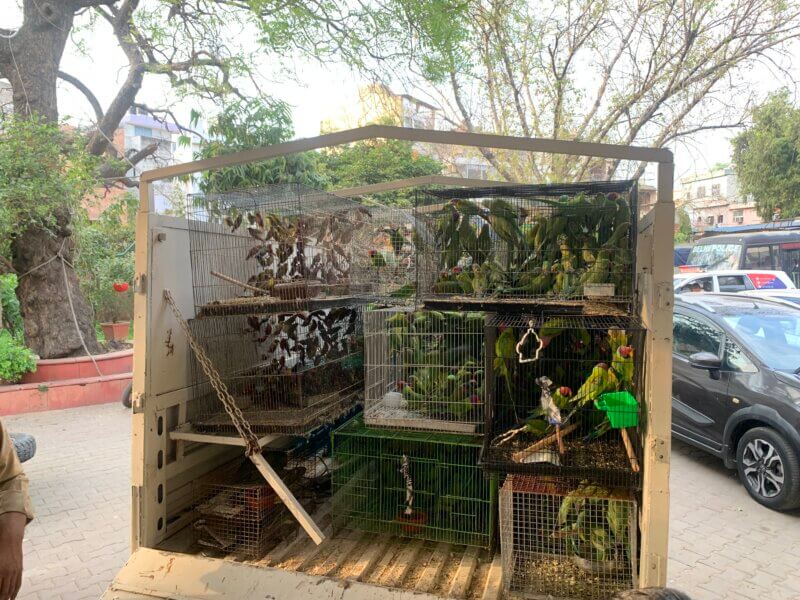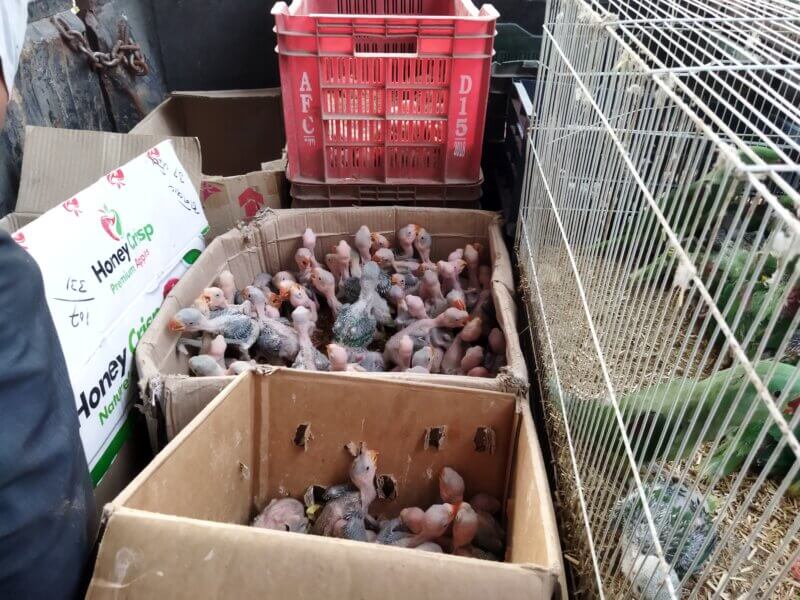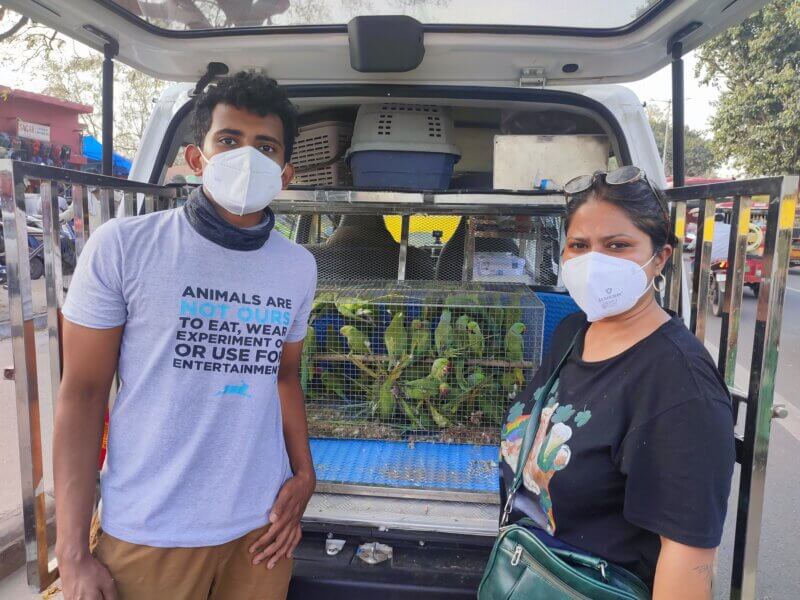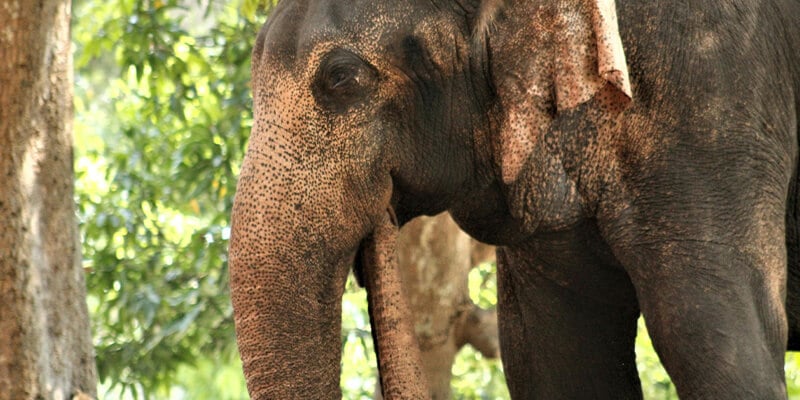Following a PETA India Complaint, Thousands of Parakeets and Other Birds Were Rescued in a Raid on Kabutar Market in Delhi
On 23 March, acting on a complaint by PETA India, the Delhi police rescued thousands of adult and baby parakeets – including ring-necked and plum-headed parakeets – hundreds of munias, two hill mynas, and a pigeon from illegal traders in the Kabutar market near Jama Masjid. Representatives of PETA India had found the parakeets crammed on top of each other into small cages and in small, dark, unventilated rooms in which they were suffocating and jostling for air and space. The baby parakeets were found stuffed on top of each other in tiny cardboard boxes. Many dead parakeets were found trapped between the wire mesh of the cages and on the floor, and some of the bodies had even started decaying. PETA India filed a formal complaint at Jama Masjid police station, requesting that a first information report be registered under various sections of The Prevention of Cruelty to Animals Act (PCA), 1960, and the Indian Penal Code, 1860. We also filed another complaint with the Delhi forest department, calling on it to register a preliminary offence report under various sections of the Wild Life (Protection) Act (WPA), 1972.
The birds are currently in the custody of Wildlife SOS, as per the direction of the deputy conservator of forests (North) and the adult parakeets, munias, and hill mynas are expected to be released into their natural habitat after examination by a veterinarian and upon receiving the court’s permission. PETA India’s rescue team nursed, fed, and offered water to all of the rescued birds while they were at the police station and later at the forest department’s office.
Hill mynas are protected under Schedule I of the WPA, and an offence involving such protected species is punishable with a minimum of three years in prison, which may be extended to up to seven years, and a fine of at least Rs 10,000. Other rescued parakeets and munias are also protected species under Schedule IV of the WPA, and an offence involving them may lead to imprisonment for up to three years, a fine of up to Rs 25,000, or both.
In nature, birds engage in social activities, such as taking sand baths, playing hide-and-seek, dancing, building nests with their mates, and nurturing their young. But when they’re caged, these vibrant animals become depressed and withdrawn. They often over-preen themselves to the point of mutilation. Some people force birds to endure wing clipping so that they can’t fly away, yet flying is as natural and important to them as walking is to humans.
The WPA bans the capture, caging, and trading of indigenous birds and states that non-compliance can lead to imprisonment, a fine, or both. In addition, caging birds violates the PCA Act, 1960, which stipulates that it’s illegal to keep or confine any animal in any cage or other receptacle which does not measure sufficiently in height, length, and breadth to permit the animal a reasonable opportunity for movement – a reasonable opportunity for movement for an aerial bird includes flight.
Tweet Your Thanks








